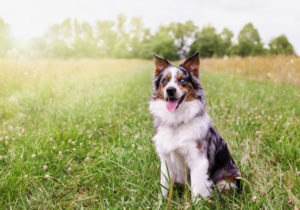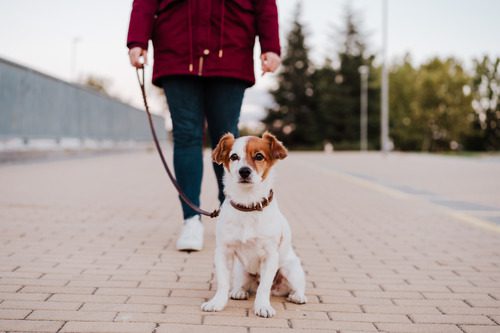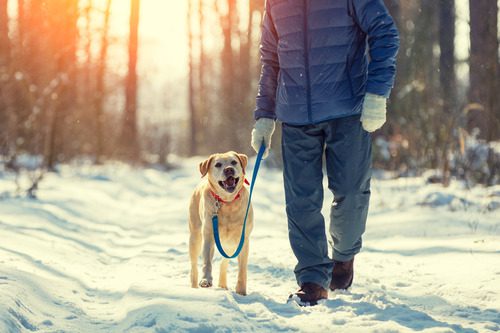6 Signs of Rabies in Dogs in Plymouth Meeting, PA
No pet owner wants to think about the possibility of their dog having rabies, and most pet owners are more than happy to keep up with regular rabies vaccinations. If your dog is not vaccinated against rabies, however, there is always the chance he could contract this dangerous and devastating illness.

In the article below, you’ll find information about the six most common signs of rabies in dogs. If your dog is showing any of these symptoms, don’t wait to take him to the veterinarian in Plymouth Meeting, PA. Even if the symptoms aren’t caused by rabies, your dog will need to be checked out thoroughly to be sure.
Sudden, Serious Behavioral Changes
Dogs with any type of behavioral change are usually sick or dealing with some medical problem that causes these sudden changes. However, if your dog contracts rabies, he will likely have very sudden and very severe changes in his behavior.
If your dog is usually very quiet, for example, he may become excitable and easily agitated. On the other hand, if he is usually active, he may simply want to spend his time cuddling. These changes come on fast with rabies rather than taking time to develop throughout your dog’s life.
Trouble Swallowing
Rabies affects a dog’s ability to move his muscles, and this especially includes the muscles in his head and neck. If you notice your dog having trouble swallowing, this may be a sign he has rabies. This symptom can, however, be related to other conditions, but you should have your dog checked right away all the same.
Trouble swallowing is usually one of the mid-stage symptoms you may see in a dog with rabies. This means that it may not happen first, but it isn’t one of the final stage symptoms either. It is usually accompanied by others on this list.
Drooling Excessively and Frothing at the Mouth
Many people recognize that foaming at the mouth is a sign of rabies. This is actually a way of describing extremely excessive drooling, which is what occurs when a dog is in the final stages of rabies. This drooling is caused by other symptoms including a lack of muscle control and trouble swallowing, and it can be a frightful thing to see.
If your dog is drooling excessively with none of the other symptoms on this list, it could be caused by other illnesses or conditions such as heatstroke. No matter the cause, this is a concerning symptom that must be assessed right away.
Seizures or Paralysis
As dogs’ conditions progress throughout the course of rabies, they will eventually lose control over their muscles completely. This sometimes results in seizures and sometimes in paralysis. In some situations, the dog may suffer from both seizures and paralysis, and will usually go into a coma shortly after these symptoms begin.
Seizures and paralysis both occur near the end of the life of a dog who has contracted rabies. If you see these symptoms in your dog, this may mean that he does not have much longer. As with the other symptoms on this list, take him to the vet in Plymouth Meeting even if you don’t think rabies is the cause.
Fear of Water
Fear of water is another of the more commonly recognized signs of rabies in dogs. The fear of water comes from the dog’s inability to swallow, which makes the dog feel afraid of the thought of trying to swallow. It is more a fear of the inability to swallow than it is a fear of water, but to an outsider, this symptom comes across as hydrophobia.
Of course, dogs who are unable to drink water will quickly become dehydrated and may lose consciousness shortly thereafter. This is a very serious symptom.
Aggression
Dogs with rabies may also develop significant aggression problems as the disease progresses. This is because of the pain, fear, and confusion they are dealing with because of the illness. If your dog is showing aggression along with even just one of the other symptoms on this list, take him to the vet immediately and be very careful to not be bitten by him in the process.
Aggression can be a symptom of almost any disease in dogs, however, so it doesn’t necessarily mean rabies is the culprit. Only your vet can help determine whether or not your dog’s aggression is due to rabies or something else.
See a Vet Right Away if Your Dog Shows Signs of Rabies in Plymouth Meeting, PA
Rabies is a very serious condition that is almost always fatal in dogs. If symptoms have already begun, it is too late to save the dog. Dogs may only be able to be treated for rabies before symptoms set in. Because of this, you should take your dog to the vet immediately if you think there is any chance that he was bitten by another animal with rabies.
Always have your dog vaccinated against rabies to prevent the potential of this deadly disease.
At The Village Vets in Plymouth Meeting, we always do everything we can to keep your pet as healthy as possible so they can live a long and happy life with you. This includes making sure they’re always up to date on their vaccinations to help prevent them from contracting dangerous illnesses. If you think your pet is experiencing signs of dog rabies, call us at (484) 820-1700 or schedule an appointment online with our team right away.
Recent Posts
About The Village Vets
The Village Vets of Plymouth Meeting offers excellent service to clients in a comfortable, friendly atmosphere. To learn more about us and how we can better serve you and your pet here in Plymouth Meeting, PA, click the button below.
Share This Post
Recent Posts
About The Village Vets
The Village Vets is a network of three animal hospitals based in Atlanta, GA and the surrounding area. We offer honest, excellent service to our clients in a comfortable, friendly atmosphere. To learn more about our locations and how we can better serve you and your pet, click the button below.




